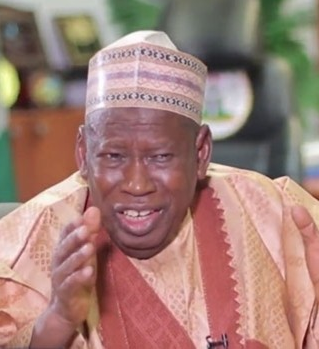
Abdullahi Ganduje, National Chairman of the ruling All Progressives Congress (APC), has stated that there is nothing wrong with Nigeria operating a one-party system if that is the will of the Nigerian people. He made the remarks on Friday, May 9, after leading three senators from the opposition Peoples Democratic Party (PDP) in Kebbi State to a meeting with President Bola Tinubu, ahead of their formal defection to the APC.
Ganduje argued that political dominance through voluntary defection is a natural democratic process and not unlawful. “If a one-party state is a wish and blessing to Nigeria, then so be it. A one-party state is not by force. It is by negotiation, and it is by other political parties seeing the effect of the positive governance of our party,” he said. He cited China as an example of a powerful nation operating a one-party system, emphasizing that the APC is not actively working to eliminate opposition parties but welcomes defections as a sign of public trust in its governance.
He dismissed concerns that the APC is planning to impose a one-party state, stating, “We are not saying we are working for a one-party system, but if this is the wish of Nigerians, we cannot quarrel with that. You know they say too many cooks spoil the soup-too many political parties spoil governance.”
Ganduje described the defection of the three Kebbi PDP senators-Adamu Aliero, Yahaya Abdullahi, and Garba Maidoki-as a positive development reflecting the acceptance of President Tinubu’s policies. He assured that the APC is well-prepared to manage the integration of defectors, citing the party’s constitution and political experience to ensure a smooth process.
“This is a good development and in consonance with what is happening in Nigeria today. Almost every week in the Senate and House of Representatives, you see members of other political parties decamping to our party,” Ganduje said.
The APC chairman’s comments have sparked national debate about Nigeria’s political future, democratic diversity, and the implications of growing defections from opposition parties to the ruling APC ahead of the 2027 elections.






